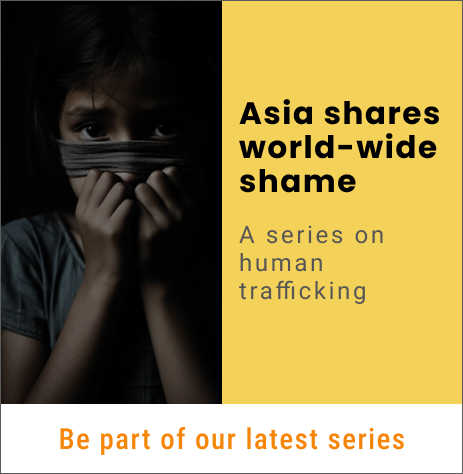The global median level of government restrictions on religion has reached an all-time high of 3.0 on a 10-point index, according to the results of a new survey by the US-based Pew Research Center.
The Government Restrictions Index was at 1.8 when Pew Research began tracking the restrictions in 2007, the survey results released on March 5 said.
Religious groups faced harassment by governments in 183 of 198 countries analyzed in 2021 which is the largest since the survey began.

On the other hand, “governments interfered in worship in 163 countries, down slightly from 164 in 2020 but still close to the all-time high,” the survey said.
Pew Research’s Government Restrictions Index (GRI) includes laws, policies, and actions that regulate and limit religious beliefs and practices.
This also includes policies that single out certain religious groups or ban certain practices; the granting of benefits to some religious groups but not others; and bureaucratic rules that require religious groups to register to receive benefits.
China, Russia, Iran, Egypt, and Indonesia had the highest levels of government restrictions on religion among the 25 largest countries analyzed. All had “very high” GRI scores.
On the other hand, the lowest levels of government restrictions in this group were recorded in Japan, the Democratic Republic of the Congo, South Africa, the Philippines, and the US
The US had “moderate” levels of government restrictions while the other four had “low” levels, the survey said.
The survey analysed various real-life scenarios that restrict the free practice of religion.
For example, the Saudi government has targeted Sunni clerics (along with Shiite clerics) when they express religious views deemed unacceptable by the government, the survey noted.
A similar situation exists in Jordan, where the government pays salaries of mosque employees and forces imams (clerics) to stick to selected themes for their Friday sermons, the survey said.
The Social Hostilities Index (SHI), a 10-point scale composed of 13 indicators showed a decline from 1.8 in 2020 to 1.6 in 2021, the survey observed.
The global median level of social hostilities involving religion includes violence and harassment by private individuals, organizations, or groups.
Among the countries surveyed, 43 countries (22 percent) had “high” or “very high” levels of social hostilities in 2021, up from 40 countries (20 percent) in 2020.
This value was closer to the low point (18 percent) than to the high point (33 percent) previously recorded.
For example, at least one case of government harassment was reported in each of the 20 countries in the Middle East-North Africa (MENA) region.
The same was true for 43 of 50 countries in the Asia-Pacific region (86 percent), 43 of 45 countries in Europe (96 percent), 33 of 35 countries in the Americas (94 percent), and 44 of 48 countries in sub-Saharan Africa (92 percent).
Nigeria, India, Egypt, Pakistan, and Bangladesh had the highest levels of social hostilities relating to religion among the 25 most populous countries, the survey said.
Nigeria, India, Egypt, and Pakistan had “very high” SHI scores while Bangladesh fell into the “high” category. Japan, China, the US, Turkey, and South Africa had the lowest levels of social hostilities in this group.
Turkey and South Africa had “moderate” levels of social hostilities, while the other three countries had “low” levels.
According to the survey, India had the second-highest level of social hostilities among the countries.
“Although the SHI score in India declined from 2020 to 2021, the country continued to have the highest levels of social hostilities in the Asia-Pacific region, followed by Afghanistan and Pakistan,” the survey said.
For example, the United Christian Forum, an ecumenical body that tracks persecution against Christians in India, said the number of “violent attacks” targeting Christians increased from 279 in 2020 to 486 in 2021.
“Attacks on Muslim properties by Hindu nationalist groups were also reported during the year, including incidents in October targeting mosques and Muslim-owned shops and houses in Tripura state,” the survey said.
Allegedly, these attacks were in retaliation for violence against Hindu minorities in neighboring Bangladesh, the survey said.
Credit: Source link




